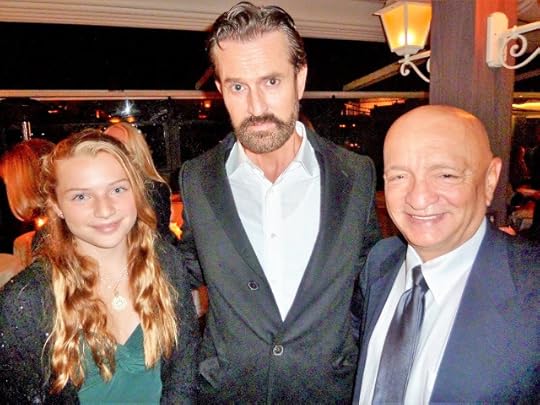Kenneth Atchity's Blog, page 109
October 25, 2018
TBT - Rome Film Festival Ken Atchity with Rupert Everett and Meggie McKenna
Published on October 25, 2018 00:00
October 22, 2018
Mysteryrats Maze Podcast Features Dennis Palumbo's Short Story Players
Mystery short story, "Players", written by mystery author Dennis Palumbo and read by Fresno actor Max Debbas. Players was previously published in From Crime to Crime, by Tallfellow Press.
Listen to more podcasts
Listen to more podcasts

Published on October 22, 2018 00:00
October 20, 2018
Montreal Times Reviews Dennis Palumbo's Head Wounds
Check out Page 13 for Review of Dennis Palumbo's Head Wounds
ON SALE NOW! Daniel Rinaldi #5, HEAD WOUNDS
"A riveting series." PUBLISHERS WEEKLY
"Jack Reacher with a psychology degree." KIRKUS REVIEWS

Published on October 20, 2018 00:00
October 18, 2018
Book Marketing Buzz: Interview with Literary Agent & Hollywood Producer Ken Atchity

Ken Atchity, who has successfully negotiated hundreds of publishing and Hollywood deals, edited and written numerous books, was a professor of comparative literature and creative writing, and produced over 30 stories for television and film, is interviewed here by BookMarketing BuzzBlog:
1. Ken, are you working with authors today?I certainly am, more than ever, now that I’ve found a better way to do it. Through my webinars and storymerchant.com services we can help with nearly every writer’s needs.
2. What are some of the biggest properties that you’ve handled?By far the biggest to date is THE MEG, which has recently passed half a billion dollars at the box office! The next biggest is the franchise DR. FUDDLE AND THE GOLD BATON, slated to be three live-action animation films.
3. What do you enjoy about working with creative talent?I enjoy almost every aspect of it, except for the bad craziness part. I love discovery, development, perfecting the story, publishing the story, and producing the story.
4. As an author yourself, what advice do you have for other struggling writers?Never stop learning your craft, never stop being grateful that you’re a writer, and never stop writing.
5. What trends do you see in entertainment and book publishing?The trend is toward an insatiable demand for better and better stories. It’s the greatest time for storytellers since the world began talking.
6. You used to be a frequent columnist for The Los Angeles Times Book Review.How have the changes in the news media impacted the book world?Changes have made it even more difficult for books to become visible, though the internet offers countless ways to achieve visibility.
7. What’s a boy from Louisiana doing in LA and NYC?Just back from a trip to Louisiana, I ask myself that every day. I’m the luckiest guy in the world to have spent a lifetime in the story marketplace directing the power of stories.
8. Which genres excite you the most? Why?Action and thrillers are my favorites, as well as Christmas stories, and powerful dramas; all of them have a huge attraction to the marketplace.
For more information, please consult: www.storymerchant.com

Published on October 18, 2018 00:00
October 16, 2018
In Memoriam: Art Johnson
Art Johnson was a very gifted composer and talented multi-instrumental musician, having toured with Lena Horne, recorded with Barbara Streisand, and accompanied Pavarotti. Art was also a wonderful storyteller and author who battled two diseases at the same time: Parkinson’s and polio, and yet created words and music every minute of his life.
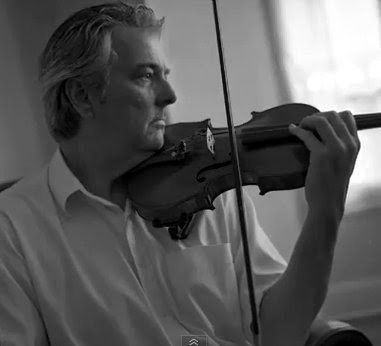
Born in San Diego, California in 1945. At the age of twenty-three, Arthur Johnson moved to Hollywood where he spent the next twenty-one years as a studio musician, composer for films and records and touring musician to the stars. In 2002, he moved to Monaco with his wife Patricia.
He continued to perform and teach throughout his illness as well as completing an autobiography entitled Memoirs of a Sideman (excerpts and other writings here), and three novels, The Devil's Violin , Deadly Impressions and recently Marilyn My Marilyn . Listen to his music for Marilyn, My Marilyn Film.

Published on October 16, 2018 11:09
7 Ways The Meg Was Much Better Than You Expected
Jason Statham, talent from around the globe and a great big shark? Sign us up!

Jason Statham’s The Meg, like its titular megalodon, swam a little under the radar on its summer release. In these times of Sharknado after Sharknado, you’d be forgiven for thinking this was more B-movie trash.
But honestly, that does The Meg a disservice. Yes, it’s a B movie but it’s bloody proud of it. Every single person working on the movie knows they’re on a popcorn flick set, and each scene shows how much fun they’re having.
From start to finish, the film is a treat. Jumping seamlessly from laidback scenes fizzing with chemistry to bloody gore, The Meg defies expectation at every turn. Jason Statham, backed up by Rainn Wilson (The Office’s eccentric Dwight Schrute), Ruby Rose and a whole cast of diverse faces combine to make a marvellous summer movie.
Awards season is coming up, and although it’s unlikely to get the awards nod, there are a lot of reasons this film was much better than it’s given credit for.
If you still haven’t caught this future cult classic, there’s a couple of spoilers on entry number six, but the rest are safe, open waters to swim through.
Read more


Jason Statham’s The Meg, like its titular megalodon, swam a little under the radar on its summer release. In these times of Sharknado after Sharknado, you’d be forgiven for thinking this was more B-movie trash.
But honestly, that does The Meg a disservice. Yes, it’s a B movie but it’s bloody proud of it. Every single person working on the movie knows they’re on a popcorn flick set, and each scene shows how much fun they’re having.
From start to finish, the film is a treat. Jumping seamlessly from laidback scenes fizzing with chemistry to bloody gore, The Meg defies expectation at every turn. Jason Statham, backed up by Rainn Wilson (The Office’s eccentric Dwight Schrute), Ruby Rose and a whole cast of diverse faces combine to make a marvellous summer movie.
Awards season is coming up, and although it’s unlikely to get the awards nod, there are a lot of reasons this film was much better than it’s given credit for.
If you still haven’t caught this future cult classic, there’s a couple of spoilers on entry number six, but the rest are safe, open waters to swim through.
Read more

Published on October 16, 2018 00:00
October 14, 2018
New Release from Kenneth Atchity
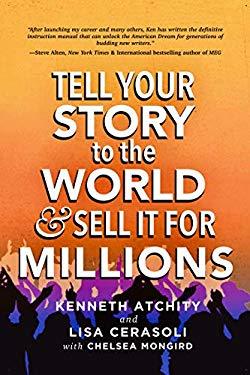 Tell Your Story to the World & Sell It for Millions
Tell Your Story to the World & Sell It for Millions Kenneth Atchity, Lisa Cerasoli, Chelsea Mongird Released on August 31, 2018 Kindle Edition: $9.99
Paperback: $16.95 Learn more
Other books by Kenneth Atchity

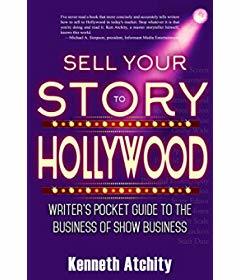

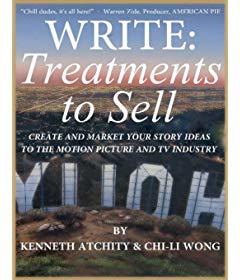


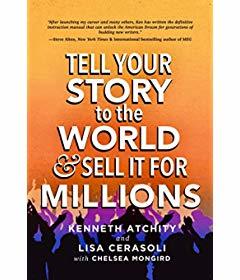

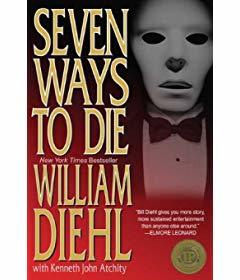

Published on October 14, 2018 13:29
October 13, 2018
Story Merchant Books New Release: Reconstructing the Shield of Achilles by Kathleen Vail
Just received first copy of Kathleen Vail’s Reconstructing the Shield of Achilles off the press from Story Merchant Books. With this surprise, and gratifying, dedication:
"To Dr. Kenneth Atchity I offer my profound thanks, not only for managing the publication of this book, but for all the time and effort he generously and wholeheartedly devotes to every project he takes on. My respect for his work is, I am sure, shared by everyone who knows him, but no one knows the lovely impact of his book, Homer’s Iliad: The Shield of Memory has had on my heart. While reading it, I felt like Penelope, spellbound by an eloquent bard telling the same tales she is weaving on her loom. I am deeply honored to see my reconstruction of Achilles’ shield on the cover of Dr. Ken’s digital version of Homer’s Iliad: The Shield of Memory, and my thanks to him are immeasurable for all the support he has given me.
Makes it all worthwhile…"


Kathleen Vail is a member of the Maker Movement taking on the Classics. Combining career skills as a computer engineer and graphic artist for the US Department of Defense with research skills as a lifetime student of Homer’s ancient Greece, Kathleen has created a physical, artistically relevant reconstruction of the divine shield of Achilles based literally and solely on Homer’s specifications in Book 18 of the Iliad.
Enjoying great success since its creation, Vail’s reconstruction of Achilles’ shield appears on the cover of Dr. Kenneth Atchity’s 2014 Kindle version of "Homer’s Iliad: The Shield of Memory," and Carolina López-Ruiz’ "Gods, Heroes, and Monsters" (2nd Edition, Oxford University Press, 2018). She has also given presentations of her work to various groups and organizations, including Virginia chapters of the Classical Association and Mediterranean Society.
Visit Kathleen’s website and blog, TheShieldofAchilles.net for an in depth exploration of all things Achilles, including his spectacular armor, and Homer’s amazing power to excite our imaginations and inspire great creations by artists and artisans, aka Makers, throughout the ages and across all art forms.

Published on October 13, 2018 09:00
October 12, 2018
DZNE Award Lecture: Nicolas Bazan Author of Una Vida
 Source: DZNE / Dirk Förger
Source: DZNE / Dirk Förger 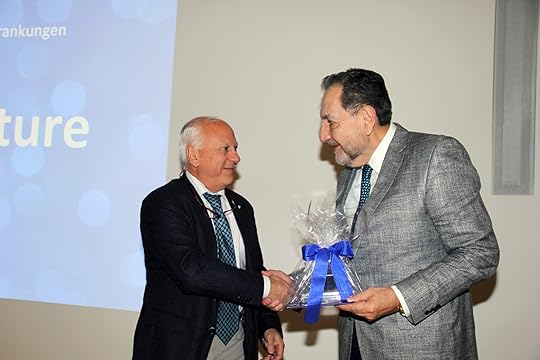 Source: DZNE / Dirk Förger
Source: DZNE / Dirk Förger 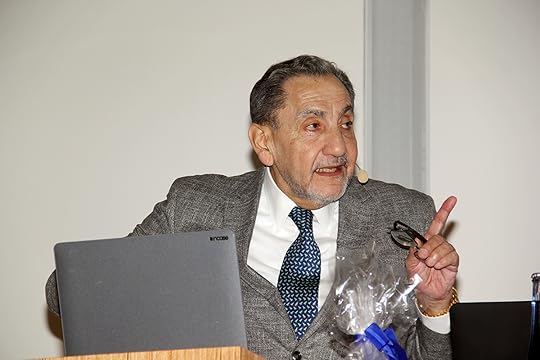 Source: DZNE / Dirk Förger
Source: DZNE / Dirk Förger  Source: DZNE / Dirk Förger tweetshare
Source: DZNE / Dirk Förger tweetshare
Published on October 12, 2018 00:00

